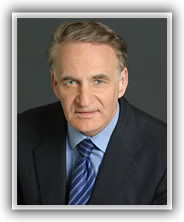Our country is more divided than ever, particularly along
party lines. Americans are not longer united by their citizenship, rather they
are divided by their political parties: Democrat or Republican. Of course,
there are those who fall in between, but the power of the two major political
parties leaves any other options out of the running most of the time.
Any number of happenings in the U.S. provide clear
demonstrations for just how divided we are. Pick a topic: health care,
international relations, national debt, economic style… the list goes on and
on, and the two parties can’t agree on a single thing. Miami
attorney Kendall Coffey points out the singular fact that both parties were
sure they’d win this election right up until the very end—“Further proof
that the two political parties can hardly agree on anything.”
Despite national polls, the Republican Party had a secret
vote monitoring system that was supposed to keep them updated with all the
latest, most accurate, information. As it turned out, Orca had some major
malfunctioning going on, and as one aide said, “Orca is lying on the beach with
a harpoon in it.”
We’re finally past the election now, and our country is
still facing some big issues that can’t be solved unless we stop bickering like
children and actually come together. President Obama can certainly afford to be
more aggressive in his policymaking in his second term, but it would be so much
better for our country if the two parties would get over their differences and
try to work out a solution that will get our country on the right track.
Washington is full of intelligent individuals—but they all
have closed their hearts and ears to anyone who thinks differently. It’s time
to open them back up and let reason in. It’s clear that when we work
separately, as Kendall Coffey points out, we overlook some pretty important
things.










